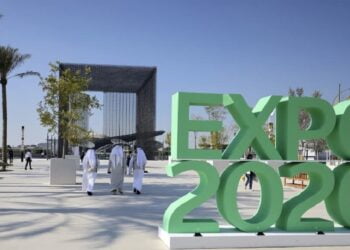How the kingdom’s shifting policy towards the Israel-Palestine conflict affects its regional and global role
Saudi Arabia, the most powerful Arab country and the custodian of the two holy mosques in Mecca and Medina, has long been seen as a staunch supporter of the Palestinian cause and a vocal critic of Israel. However, in recent years, the kingdom has shown signs of a shift in its policy towards the Israel-Palestine conflict, raising questions about its commitment to the establishment of a Palestinian state on the basis of pre-1967 borders, with East Jerusalem as its capital.
On one hand, Saudi Arabia has maintained its official position that it will not normalize relations with Israel until there is a just and comprehensive peace agreement that addresses the rights and aspirations of the Palestinians. The kingdom has also pledged financial and humanitarian aid to the Palestinian Authority and the United Nations Relief and Works Agency for Palestine Refugees (UNRWA), which provides vital services to millions of Palestinian refugees. In 2002, Saudi Arabia initiated the Arab Peace Initiative, which offered Israel full recognition and normalization of relations with all Arab states in exchange for its withdrawal from the occupied territories and a fair solution to the refugee issue.
On the other hand, Saudi Arabia has also engaged in covert contacts and cooperation with Israel on various issues of mutual interest, especially regarding their common adversary Iran and its regional allies. According to media reports, Saudi and Israeli officials have met several times in recent years to discuss security and intelligence matters, as well as potential economic and diplomatic ties. Saudi Arabia has also allowed Israeli flights to cross its airspace en route to other countries that have normalized relations with Israel, such as Bahrain and the United Arab Emirates. Moreover, Saudi Arabia has reportedly sought assurances from the United States to establish normalized relations with Israel, including assistance in developing a civilian nuclear program, lessening limitations on US arms sales, and providing security guarantees.
These contradictory signals from Saudi Arabia have created confusion and frustration among the Palestinians, who feel betrayed by their traditional ally and patron. The Palestinians have accused Saudi Arabia of abandoning their cause and aligning itself with Israel and the US at their expense. They have also rejected any attempts by Saudi Arabia to pressure them into accepting a peace plan that does not meet their minimum demands for statehood and sovereignty. The Palestinians have expressed their dismay at the lack of support from Saudi Arabia and other Arab countries during the recent escalation of violence between Israel and Hamas in Gaza, which resulted in hundreds of civilian casualties and widespread destruction.
The Palestinians have also been disappointed by the silence of Saudi Arabia and other Arab countries on the issue of Jerusalem, which is at the heart of the conflict. In 2017, US President Donald Trump announced his decision to recognize Jerusalem as Israel’s capital and move the US embassy there, breaking with decades of international consensus that the status of the city should be determined through negotiations. The move was widely condemned by the international community, including most Arab states, but Saudi Arabia did not take any concrete action to oppose it or support the Palestinians’ claim to East Jerusalem as their capital. Instead, Saudi Arabia reportedly tried to persuade Palestinian President Mahmoud Abbas to accept a US peace proposal that would grant them a state with limited sovereignty and non-contiguous territory, without East Jerusalem as its capital.
The apparent divergence between Saudi Arabia’s public rhetoric and private actions on the Israel-Palestine issue reflects the complex dynamics and challenges facing the kingdom in a changing regional and global environment. On one level, Saudi Arabia is trying to balance its religious and historical obligations towards the Palestinians with its strategic and economic interests in developing relations with Israel. On another level, Saudi Arabia is trying to adapt to the shifting policies and priorities of its main ally, the US, which has reduced its involvement and influence in the Middle East under both Trump and Biden administrations. On a third level, Saudi Arabia is trying to cope with the rising threats and competition from Iran and Turkey, which have expanded their presence and influence in the region through various proxies and partners.
In this context, Saudi Arabia may find it difficult to maintain its ambiguous stance on Palestinian statehood for much longer. The kingdom may have to choose between continuing its covert cooperation with Israel without formal recognition, which could alienate its domestic and regional constituencies; or pursuing full normalization of relations with Israel based on mutual interests, which could undermine its credibility and legitimacy as a leader of the Arab and Muslim world; or reaffirming its support for the Palestinian cause and pressuring Israel to end its occupation and oppression of the Palestinians, which could jeopardize its security and stability.
Whatever decision Saudi Arabia makes, it will have significant implications for the future of the Israel-Palestine conflict and the prospects for peace in the region. The Palestinians hope that Saudi Arabia will remain faithful to its historical role as a champion of their rights and aspirations for freedom and dignity. The Israelis hope that Saudi Arabia will join other Arab countries in recognizing their statehood and sovereignty within secure borders. The international community hopes that Saudi Arabia will play a constructive role in facilitating a just and lasting solution to one of the most protracted and complex conflicts in the world.
| The views expressed in this article belong to the author and do not necessarily reflect the editorial policy of Al-Sarira. |








